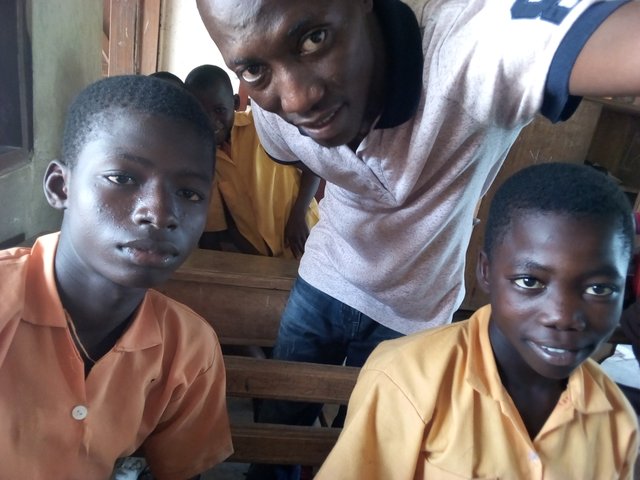This hardship was a result of the liberal policies that were not inclined to the welfare policies of the state. The ERP policies implemented were not the same as the radical policies implemented by Ghana’s first president Dr. Kwame Nkrumah and this was a result of the world order that existed at that time. Rawling's regime turn to the IMF which is an agency of the world liberal order that existed when the regime sought their assistance to recover the economy. The adoption of these policies did not determine our local policies however, it was strongly shaped by the conditions that were attached to them. This era saw the privatization of State assets and the layoff of workers that worsen the economic situation in Ghana.
The ERP resulted in uneven social, and economic development that suffocated the subaltern in abject poverty. In effect, the real intentions why Ghana adopted the policy were not fulfilled due to the sudden departure from the policy after the neo-liberal world order emerges. In as much as the ERP came with some liberal reforms, such reform was a bit alien to the citizens who for long, had been fed by the State.
In as much as the ERP was to rescue the economy from crushing, it worsens the plight of the subalterns who were already suffering but government subventions kept them surviving. Under the ERP policies adopted, the government of Ghana was forced to abandon its policy of funding universal healthcare. This policy brought about a burden on the lives of the poor and those who are living in the villages. This led to the spread of disease in the villages and among city folks that could not afford healthcare. This policy was forced down the throat of the PNDC regime which presented itself as a pro-poor regime. This was clearly a setback of the ERP policies adopted with the aim of helping the poor out of their misery. Children during this period died of basic diseases that could have been avoided if the policy was not in place or adopted. Epidemics started breaking in areas where there was under-reported data on OPD in the hospitals. Under this policy, Ghana saw a surge in viral diseases such as HIV/AIDS, Malarial, Yellow Fever etc. The strict conditionality attached to the ERP resulted in this cash-and-carry policy in the healthcare policy in Ghana.

source
The policies change brought about as a result of the ERP was felt more in the education sector where the government resorted to cash and carry policy. The government stopped funding public education from basic school to university. Basic teaching and learning materials that were provided by the State stopped and parents were made to carry the burden alone unlike in precious years when the State take care of such costs. At this period, parents who could not pay for their wards to be in school had to withdraw them from school.
“A significant number of redeployment affected access, quality, and outcomes. For example, government subsidies on textbooks and boarding school feedings were replaced by a cost-recovery measure known as “cost-sharing” with a requirement for parents to pay part of the cost of education for their children”.
-(Abukari, Kuyini, & Mohammed, 2015)
The Northern sector was under free pre-tertiary education was abolished and was replaced by cash and carry this was the same for university education which was free for all before the ERP policies that were liberal and capitalist in nature.
Again, the privatization of State companies as well as the devaluation of the Cedi brought about the downsizing of staff in these sectors. Ghanaians that were employed by the State had to lose their jobs due to privatization and liberal policies that were profited-oriented. The devaluation of the currency brought about inflation and a high cost of living in the country. This was one of the main decisions that woefully affected the working class at the time. The State cuts its funding on education, agriculture, healthcare etc. coupled with privatization that had an adverse effect on the economy. State companies like mining companies were sold out to transnational corporations and other business conglomerates. Even informal sectors that were a preserve of Ghanaians started seeing foreign invasions in these sectors.
Another effect of the economic recovery programme is the neglect of the agriculture sector by the government led to a shortage of inputs and a decline in crop production. The government scrapped its import subsidies on farming tools and chemicals used in farming. This decision led to a decline in food production in areas that primarily depends on agriculture for their survival. Cocoa and other cash crop saw a sharp decline thus, resulting in low exportation of it which in turn, crippled the economy further. This led to migration to neighbouring countries where policies were somewhat favourable. The refusal of the government to subsidize farming inputs led to low production and low prices which forced farmers to smuggle cocoa to Ivory Coast where the price was fairly good than the price in Ghana.

To conclude, the economic recovery programme adopted by the PNDC regime was to salvage the economy and to help provide a roadmap to economic development. However, such nice plans could not be implemented because the policy in itself was an international order that came with strict conditionality that had an adverse effect on the lives of ordinary Ghanaians. The ERP was an order that shaped Ghana’s internal policy of the welfare State.


